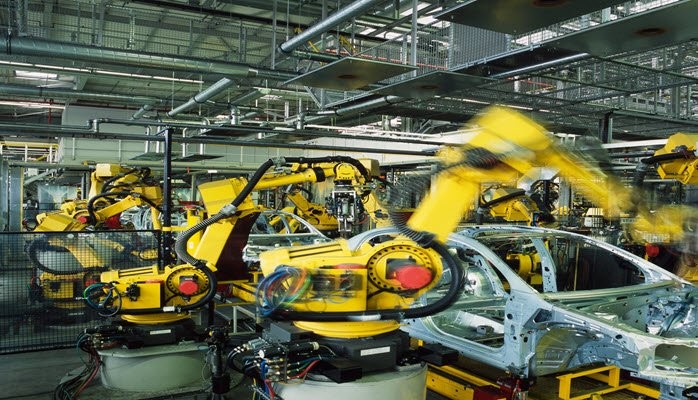
Is China getting the 4th industrial revolution right?
Last year, the Chinese government introduced the Made in China 2025 initiative—with the goal of making China a manufacturing giant within 10 years using advanced technologies like robotics, sensors, and artificial intelligence. The goal is to reduce the reliance on cheap labor in manufacturing—especially as China’s workforce ages and wages rise—and focus on automation and digital systems that improve process controls. Although an admirable goal, Made in China 2025 may be missing the point of the fourth industrial revolution.
While modernizing the shop floor with exponential technologies will keep China a strong player in the manufacturing game, this use of exponential technologies is limited in its vision. Exponential technologies around the world are playing a much more expansive role in economies, including driving the innovation that creates new business models and new markets. Can Industry 4.0 as it applies to manufacturing goals in China produce this kind of activity? Maybe—and maybe not.
For starters, China has been slow on the uptake of Industry 4.0. It is estimated that only 10 percent of Chinese firms have started to make the transition to full-scale Internet of Things, with many Chinese companies not engaged in Industry 4.0 technologies at all.[1] Playing catch-up, some Chinese manufacturers have been buying companies in Germany to import robotics expertise and increase integration of data analytics into production processes.[2] With organic applications of Industry 4.0 in manufacturing minimal right now, innovation spillover into the rest of the economy could be slim. Indeed, in a ranking of conditions needed for IoT to spread throughout an economy, China ranked 14 out of 20 countries analyzed.[3]
Even if the China 2025 efforts do have potential to promote innovation outside of production processes, there is another obstacle China may need to overcome: talent and education. According to Chinese Premier Li Keqiang, Chinese institutions of higher education need to improve their ability to promote innovative and entrepreneurial thinking. "Competition between nations nowadays,” says Li, “is in fact competition of innovation."[4] And though reforms to improve innovation in education are being implemented, it is expected that it will take more than a decade for China to feel the impact. [5]
This doesn’t mean China is going to “sit out” the fourth industrial revolution. But in terms of driving innovation and moving up the value chain, China’s use of advanced technologies is limited. The use of data analytics and sensors to improve logistics and supply chains is low value and the available skill sets required to execute on these still lower.[6] So whether Made in China 2025 can help spur innovative uptake and impact quality economic growth in these areas remains to be seen. We’ll learn more about it at the World Economic Forum’s Annual Meeting of the New Champions next week.
Gary Coleman is the Global Industry and Senior Client Advisor for Deloitte Consulting and lead partner in Deloitte’s strategic relationship with the World Economic Forum. Follow him on Twitter @gcoleman_gary.
[1] “China, Asia Carve Out Stake in Industry 4.0”; [2] “China's Big Bid For Germany's Industry 4.0 Technology”; [3] “Moving up value chain in China with the Internet of Things”; [4] “Chinese Premier urges higher education reform to boost innovation”; [5] “China: Building an innovator”; [6] “China's Big Bid For Germany's Industry 4.0 Technology”
Strategy Consultant & Lecturer in Management Practice at Nelson Mandela University
7yChina is going to be the new Germany- as a formidable industrial manufacturing hub. Looking at their Project 2025 Initiative. May they carry the aspirations of the emerging markets with them. including African players like Kenya, Ethiopia, Nigeria, SA and Egypt.